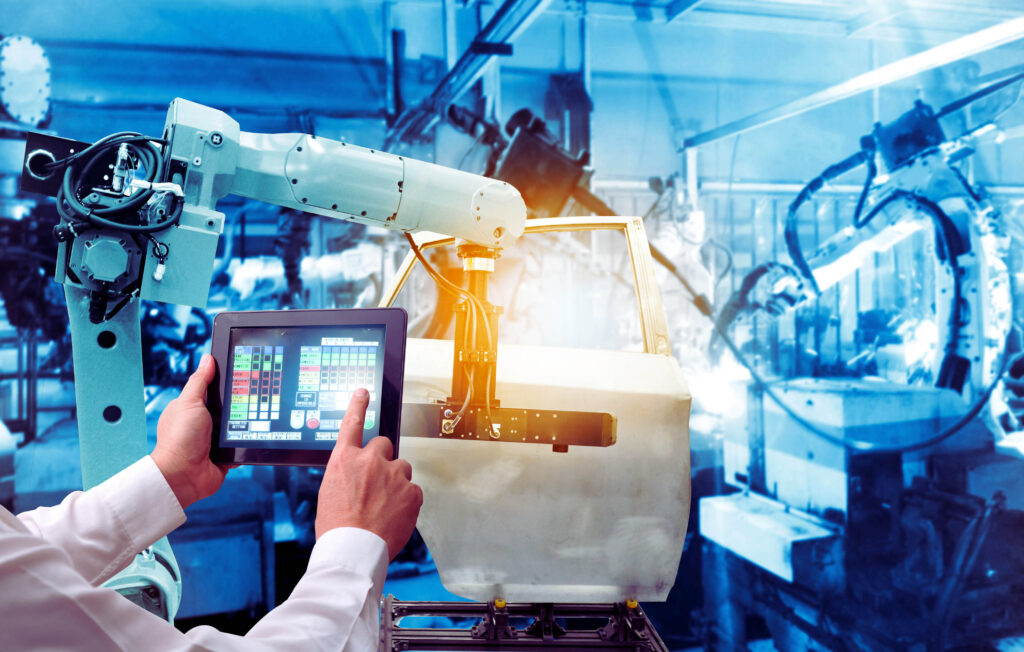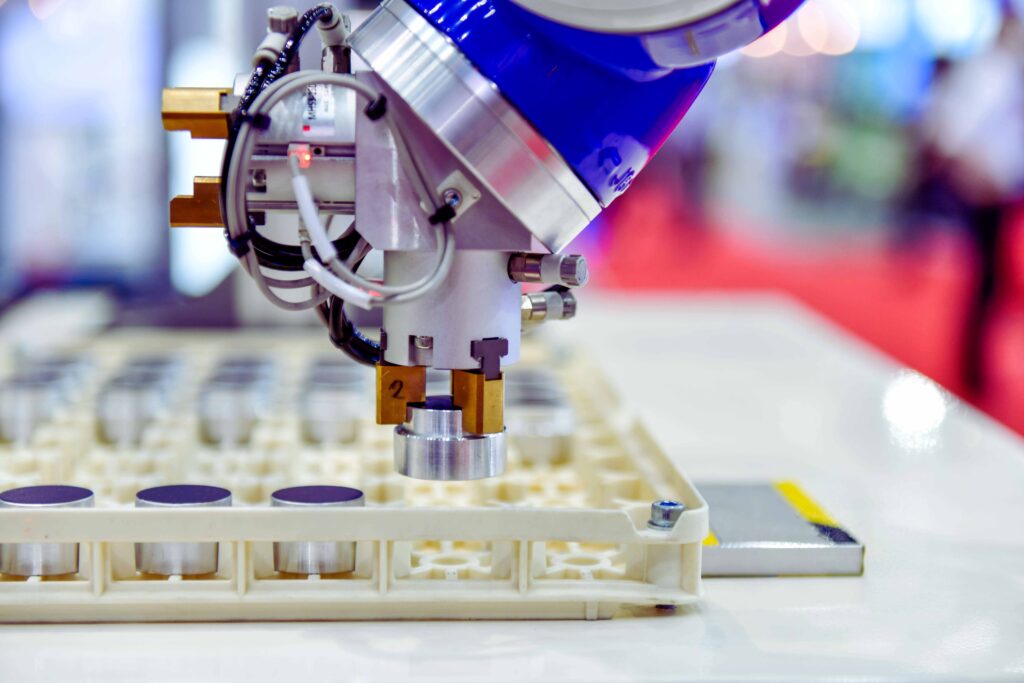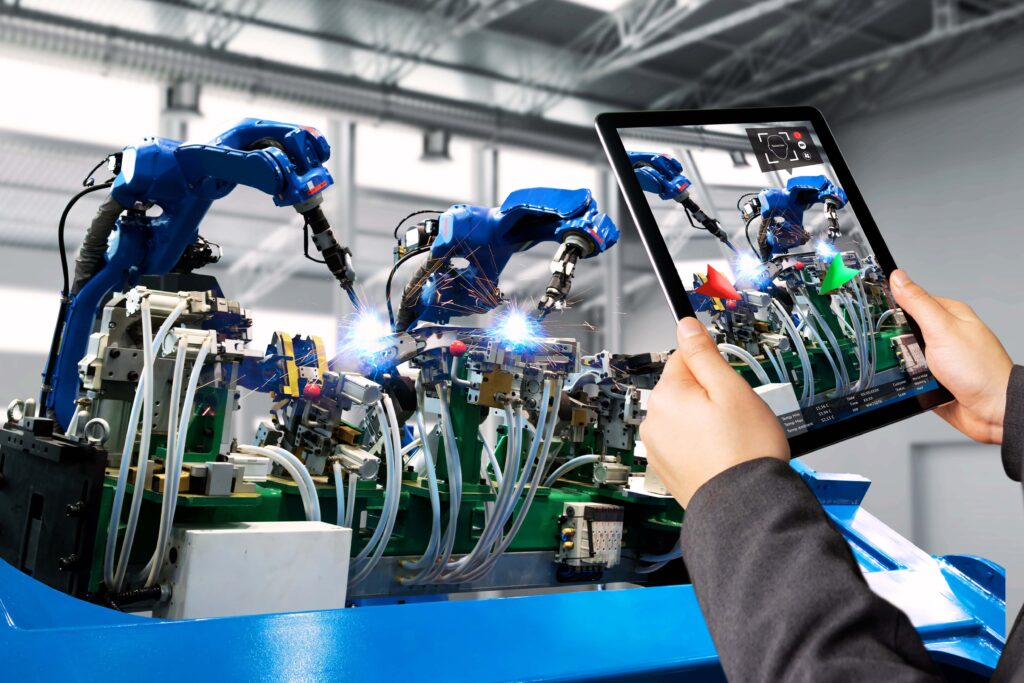The manufacturing industry is undergoing a transformation driven by the integration of automated electronic services. These advancements are revolutionizing production processes, significantly improving efficiency and precision. This article explores the benefits of automated electronic services in manufacturing, highlighting how these innovations are reshaping the industry.

The Rise of Automation in Manufacturing
Automation in manufacturing is not a new concept, but recent advancements in technology have propelled it to new heights. Automated electronic services involve the use of computer-controlled machinery and systems to perform tasks that were traditionally done manually. This shift is leading to smarter, faster, and more accurate manufacturing processes.
Enhancing Manufacturing Efficiency
One of the primary benefits of automated electronic services is the significant improvement in manufacturing efficiency. Automation streamlines production processes, reducing the time and effort required to produce goods.
1. Increased Production Speed
Automated systems can operate continuously without the need for breaks, significantly increasing production speed. Machines can perform repetitive tasks with consistent speed and accuracy, which human workers may find tiring or monotonous. This capability ensures that manufacturing plants can produce more units in less time, meeting higher demands without compromising quality.
2. Reduced Human Error
Human error is a common issue in manual manufacturing processes, leading to defects, rework, and wasted materials. Automated electronic services minimize the risk of human error by executing tasks with high precision. Automated systems follow programmed instructions with exactitude, ensuring each product is manufactured to the same standard.
3. Cost Savings
While the initial investment in automation technology can be substantial, the long-term cost savings are significant. Automation reduces labor costs by minimizing the need for manual intervention. Additionally, the increased production speed and reduced error rates lead to lower operational costs and less waste. These savings can be reinvested into further improving manufacturing capabilities.
Precision Engineering: A New Standard
Precision is a critical factor in manufacturing, especially in industries that require high levels of accuracy, such as electronics, aerospace, and medical devices. Automated electronic services are setting new standards in precision engineering.

1. Microscopic Accuracy
Automated systems can achieve levels of precision that are impossible for human workers. For example, in electronic manufacturing, automated pick-and-place machines can position components on a circuit board with microscopic accuracy. This precision ensures that electronic devices function correctly and reliably.
2. Consistent Quality Control
Automated electronic services incorporate advanced sensors and monitoring systems that provide real-time feedback on production quality. These systems can detect even the slightest deviations from specifications and make immediate adjustments. This continuous quality control ensures that every product meets the highest standards, reducing the likelihood of defects and recalls.
3. Complex Manufacturing Tasks
Some manufacturing tasks are too complex or delicate for manual labor. Automated systems excel in these areas, performing intricate operations with ease. For instance, in the aerospace industry, automated machines can manufacture complex parts with precise geometries that are essential for the performance and safety of aircraft.
The Future of Electronic Manufacturing
The integration of automated electronic services is driving the future of electronic manufacturing. As technology continues to evolve, these systems are becoming more sophisticated, flexible, and accessible.

1. Advanced Robotics
Robotics is a key component of automated electronic services. Modern robots are equipped with advanced sensors, machine learning algorithms, and artificial intelligence, enabling them to perform a wider range of tasks with greater autonomy. These advancements are expanding the capabilities of automated systems, allowing them to handle more complex and varied manufacturing processes.
2. Internet of Things (IoT)
The Internet of Things is transforming manufacturing by connecting machines, systems, and devices to a central network. This connectivity enables seamless communication and coordination between different parts of the production process. Automated electronic services can leverage IoT to optimize manufacturing workflows, monitor equipment health, and predict maintenance needs, further enhancing efficiency and precision.
3. Customization and Flexibility
Future automated systems will offer greater customization and flexibility, allowing manufacturers to quickly adapt to changing market demands. These systems will be able to switch between different production tasks with minimal downtime, enabling manufacturers to produce a variety of products on the same production line. This flexibility is essential for staying competitive in a rapidly changing industry.
Conclusion
Automated electronic services are revolutionizing the manufacturing industry by enhancing efficiency and precision. The benefits of increased production speed, reduced human error, and significant cost savings are driving widespread adoption of automation technology. Precision engineering capabilities are setting new standards for quality and reliability in manufacturing. As technology continues to advance, the future of electronic manufacturing looks brighter than ever, promising even greater innovations and improvements in efficiency and precision.
